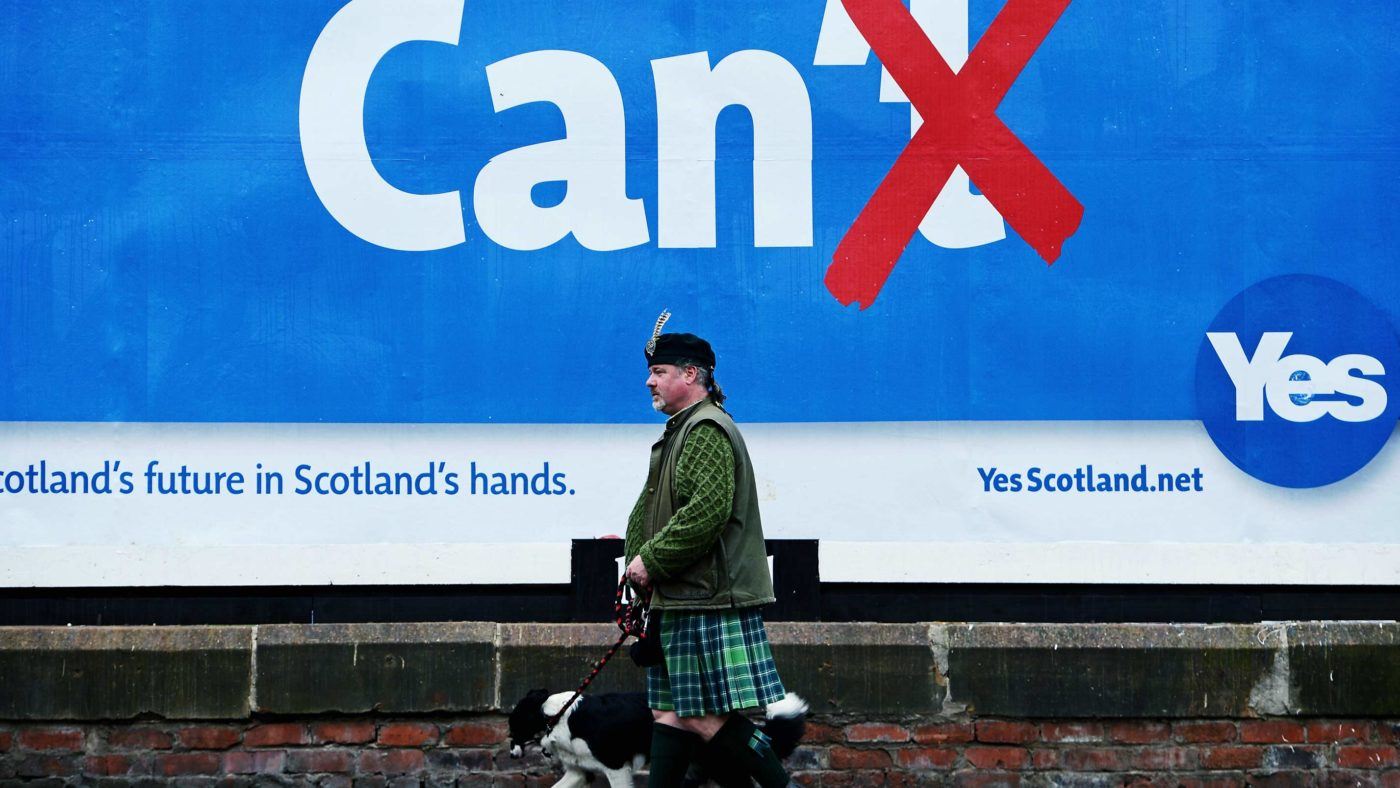Let’s be clear about something that, for some reason, has become lost in the fog of war: a second referendum on Scottish independence should not be about whether the nation rejoins the EU. As things stand, though, that is exactly what it risks being about, to everyone’s diminishment.
Brexit may be the trigger for another referendum, but the question it poses is not actually “should Scotland be in the EU”. It is a linked, but deeper and older one: who governs Scotland? That is arguably too important a debate to be muddied with consequent complexities. First things first.
The secret genius of the United Kingdom is that it has always worked in practice rather than in theory. In theory it’s a mess – three small nations lashed to the hide of the English elephant, at the mercy of whether that behemoth wishes to turn left or right or lie on its back for a good scratch. In practice, the arrangement has worked because the elephant has regularly allowed its passengers to hold the reins and has largely stayed upright.
But Brexit is the straw that could break the elephant’s back. A 62 per cent Scottish vote to Remain – which in modern British electoral terms is a whopping margin – matters not a jot, because Jumbo wants something different and on this occasion Jumbo is going to have what it wants. So Scotland is leaving the EU.
Jumbo is also telling Scots they can’t have another independence referendum – not now, possibly not for a long time – and is, therefore, stomping down the path towards yet another constitutional crisis. How does this end?
On the political talk shows yesterday, Nicola Sturgeon repeated the SNP’s position that an independent Scotland should apply to become a full member of the EU. Fair enough – that’s up to her and her colleagues. But to win a majority for independence Ms Sturgeon must first persuade enough Scots, of all political views and none, that walking away from the UK is the right course to take.
In that light, here are some significant points:
1) Ms Sturgeon cannot – and does not, obviously – assume that all 62 per cent of Remainers now support independence.
2) Among the 62 per cent, there will be some who did not previously support independence but who now do so.
3) Among those, there will be some who do not support the idea of an independent Scotland rejoining the EU.
4) A third of SNP voters backed Brexit, including some of Ms Sturgeon’s Holyrood ministers.
I am debating all this internally. I voted No in 2014, and Remain in 2016. I may or may not vote for independence next time around – Brexit certainly makes it more likely I’ll flip. But I’m not at all sure I’d favour a separate Scotland then becoming a fully fledged member of the EU.
It’s one thing to have been part of that union as a muscular global power with one of the world’s largest economies, ensuring one had influence, bargaining power and the ability to opt-out when it suited. Going in again as a wee guy without much to offer beyond a watery-eyed faithfulness – especially with the future of the EU in such a parlous and unknowable state – isn’t quite so appealing.
So by committing herself to EU membership, and by tying that into a Yes/No vote on independence, Ms Sturgeon is arguably adding an unnecessary complication to the debate. Yes, our relationship with Europe is relevant, but should we ask ourselves so many questions at once?
Surely the first question is simply: do we want to leave the UK? Are the Union and its benefits versus its compromises and limitations still appropriate for a 21st century, democratically awakened Scotland?
The most impressive part of Ms Sturgeon’s speech at Bute House a week ago, as she announced her desire for a new vote, was when she said that at a moment as definitive as Brexit it was not for her to decide Scotland’s future – it was for the Scottish people to do so.
Here is a modest proposal. She could use the same argument again when it comes to determining an independent Scotland’s relationship with the EU. First, Scotland must decide whether it wants to remain a part of the UK. If it decides to leave, there should then be a second referendum reasonably quickly on whether or not to pursue EU membership.
Some will argue that we will have quite enough of referendums by then – but, then, most people have had quite enough of them already. And if independence comes about it is likely to be accompanied by a newly energised electorate who would like a say in the big questions that then arise.
So, in the UK or out? In the EU or out? Perhaps they’re different questions.


